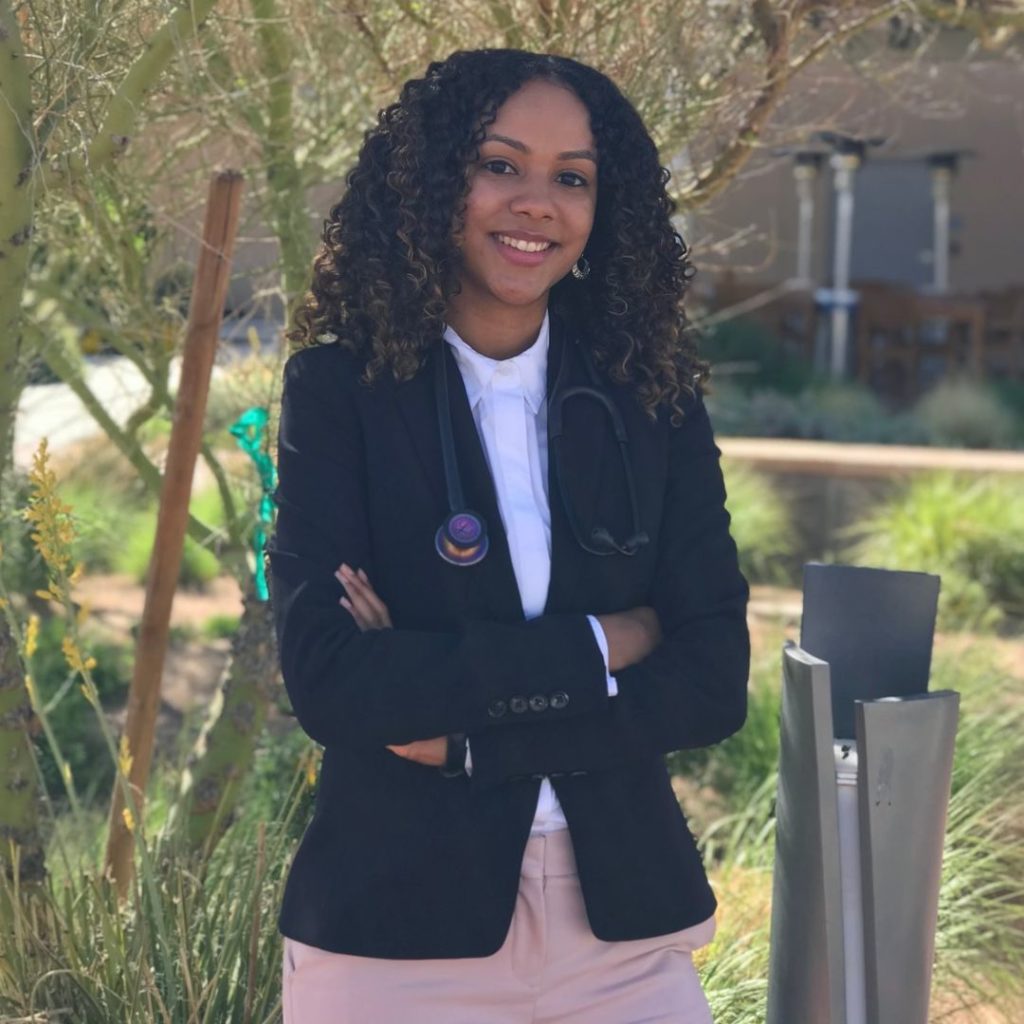Describe your life prior to diagnosis:
Prior to my diagnosis, I faced unrelenting fatigue and exhaustion, tension headaches, migraines, foggy brain and bloating on a daily basis. This made my life as a first-year medical student even more difficult to endure.
How did you come to know (or suspect) that you have celiac disease?
As a medical student who loves studying disease processes, I tried to do my own research on the cause of my symptoms. I came across various diseases like IBS, SIBO, celiac disease and food sensitivities. I felt the greatest amount of fatigue and brain fog after eating a bowl of pasta or a wheat bread sandwich, but when I mentioned this to my primary care provider, she dismissed it because it’s known that eating pasta can make you feel tired.
My symptoms continued to progress into constant fatigue no matter what I ate and my stomach was making embarrassing noises after eating, filling me with such anxiety. One day, when I got really sick with diarrhea and a fever, I went to an urgent care where they decided to refer me to GI for hyperactive bowel sounds. When I shared my symptoms with the gastroenterologist and how long it’d been going on for, he told me it was likely just IBS related to my stress as a medical student. He told me to follow a low-FODMAP diet and sent me on my way. I accepted the diagnosis and decided to follow the diet strictly. However, I had no improvements whatsoever.
A couple of months later, still suffering, I went to another gastroenterologist for a second opinion. I was so thankful this gastroenterologist truly heard my cry for help and was willing to find an answer so I could live a normal life again. I mentioned to her that after researching celiac disease, I wanted to test for it just in case. She had a very low suspicion of it and asked if I had European ancestry. Even though I shared that I was Hispanic, she was still willing to test for it as she really wanted to help me find answers to my symptoms. I was extremely grateful for this as I screened positive for celiac disease. She sent me to get a small bowel biopsy, which also strongly indicated celiac disease.
When I had to return to the first gastroenterologist, he was in shock that I screened positive for celiac disease as a person of color and proceeded to ask me if I was sure I had European ancestry.
If you were diagnosed, who made the diagnosis?
The third physician I shared my frustrations with finally tested and diagnosed me with celiac disease.
How long did it take for you to get diagnosed since your first symptoms and what (if any) challenges did you face along the way?
It took me two and a half years to get diagnosed since my first symptoms. I shared my symptoms with several doctors, looking for answers and wondering if it was just all in my head after being told I was probably just stressed as a medical student. It’s disheartening to know that if I just looked different I could’ve been diagnosed sooner. If I hadn’t advocated for myself or finally found a physician who decided to look past my ethnicity, I’d still be struggling to figure out what was wrong with my body.
As a medical student, I can say firsthand we are taught that celiac disease is a caucasian disease, especially prevalent in those of northern European descent. However, this notion has been proven to lead to under diagnosis in people of color like me and perpetuates disparities in healthcare. It is known that Latinx-Americans actually share a mixture of African, Native American, and European ancestry, thus certain diagnoses should not be ruled out solely based on a person’s race or ethnicity.
Do you believe anything could have sped up your diagnosis? If so, please explain:
Increased awareness among healthcare providers that celiac disease is not limited to any race or ethnicity.
Describe your experience with living with celiac disease:
Living with celiac disease has been life-changing. Food was always a source of comfort and enjoyment for me until my diagnosis, and then it became a source of anxiety. Knowing that any bit of gluten can bring me back to square one of feeling fatigued and just miserable, I became hyperaware and suspicious of any food, wondering if it could be cross-contaminated. I now have to think twice before making plans to socialize with friends at a restaurant I’m not familiar with to avoid getting sick. The amount of money I spend on groceries has exponentially increased and I have to be very mindful of that cost as a full-time student.
However, in the process, I’ve learned of my passion for cooking delicious gluten-free food and I’m able to enjoy many different options from the comfort of my home. Celiac disease comes with many burdens, from friends feeling bad for you to you feeling bad that when you’re out with friends and family you have to choose where the group can go to eat. Despite all the necessary transitions, celiac disease does not have to be a curse in your life, but it does require a strong-willed mindset and support from friends and family to stay committed to a gluten-free diet.



